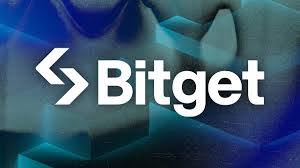Universal exchange platform, Bitget, has taken its blockchain and stock investing education programme to Lagos, offering Nigerian investors a chance to better understand cryptocurrencies, tokenised assets, and global market opportunities. The initiative, tagged the “Lagos Community Education Day,” focused on bridging the gap between traditional finance and digital innovation.
In a statement on Tuesday, the company said the training aimed at simplifying complex financial concepts and showing how everyday people can access global stocks, exchange-traded funds (ETFs), and digital assets through blockchain-powered platforms. The session featured lectures, live demonstrations, and practical workshops that covered the basics of blockchain, cryptocurrency trading, and tokenisation of real-world assets.
Bitget recently launched tokenised stocks and real-world assets on its platform, allowing Nigerian crypto users to gain exposure to leading multinational companies such as Tesla and Microsoft via blockchain-native interfaces. This innovation removes the need for traditional intermediaries and opens up global investment opportunities to more Nigerians, especially young people seeking financial independence.
During the Lagos event, participants were introduced to the fundamentals of blockchain networks like Bitcoin and Ethereum. Trainers explained custodial and non-custodial wallet options, demonstrated how to secure funds, and offered step-by-step guides on making deposits and withdrawals. With Nigerian realities in mind, examples included peer-to-peer trading, card payments, and mobile money transfers.
The programme also offered hands-on sessions on advanced trading tools, including spot, futures, and copy trading. Participants were shown how to research investment opportunities, verify the legitimacy of projects, and manage risks before committing funds. Organisers said the training was designed to empower Nigerians with the skills needed to avoid scams and take advantage of emerging financial opportunities responsibly.
A major highlight of the session was the discussion on how crypto exchanges are expanding beyond digital currencies to include global equities and ETFs. Experts explained that tokenisation now makes it possible for Nigerians to invest in global markets from their phones. By combining blockchain with stocks and ETFs, barriers such as limited access to international brokers and high transaction costs are reduced.
Chief Operating Officer of Bitget, Mr Vugar Usi Zade, said the initiative was about providing communities with practical financial tools. “By creating spaces like this in Lagos, we give communities practical tools to navigate blockchain from the right sources, from wallets and payments to opportunities in global stocks and ETFs. Education is at the heart of our mission,” he said.
According to him, the strong turnout at the event showed that Nigerians are eager to connect traditional finance with Web3 technologies. He stressed that the training was not only theoretical but interactive, with participants engaging in trivia sessions, polls, and networking activities. Winners received branded merchandise, collectibles, and other incentives.
Usi Zade added that the Lagos edition was part of a larger African tour, with earlier events held in Nairobi, Johannesburg, and Addis Ababa. He described the programme as a regional movement to demystify digital finance for young Africans and equip them with practical knowledge that can open new economic opportunities.
At the end of the day, many participants left with fresh insights into the world of cryptocurrencies, tokenised stocks, and digital finance, as well as new connections with peers who share similar interests. Organisers believe that these engagements are crucial for building a generation of Africans who can compete in the global digital economy while making informed financial decisions.
Industry analysts say initiatives like Bitget’s education day are timely, as Nigeria remains one of the fastest-growing crypto adoption markets in the world. With rising youth interest in digital finance and limited access to global investments through traditional channels, blockchain-based solutions may provide a pathway for more inclusive economic participation.
